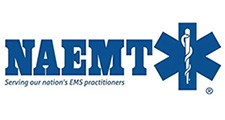
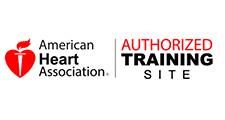
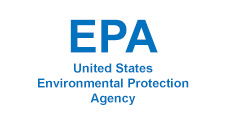
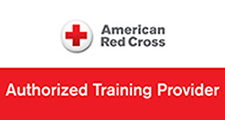
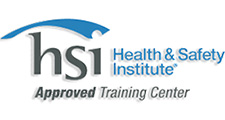

In the high-stakes realm of prehospital trauma care, the NAEMT PHTLS (Prehospital Trauma Life Support) course stands as a beacon of excellence. Geared towards a diverse array of emergency responders, from seasoned paramedics to dedicated firefighters, this comprehensive program equips participants with the essential skills needed to effectively manage traumatic injuries in the field.
Covering a spectrum of topics ranging from rapid trauma assessment to advanced airway management and hemorrhage control, the PHTLS course emphasizes a systematic approach grounded in evidence-based practices. Participants learn to prioritize care based on the severity of injuries, ensuring timely interventions that can significantly impact patient outcomes.
Moreover, the course addresses the unique challenges faced by different types of responders, such as tactical medics operating in high-risk environments or wilderness medics providing care in remote settings. By integrating practical scenarios and hands-on exercises, the PHTLS course fosters a dynamic learning environment where participants can apply their newfound knowledge and skills under simulated real-world conditions.
Whether responding to a mass casualty incident or providing care to a single trauma patient, graduates of the NAEMT PHTLS course emerge as confident and competent providers, ready to deliver life-saving interventions when every second counts.
Emergency Medical Technicians (EMTs)
EMTs are frontline responders providing initial medical care in various emergency situations. The NAEMT PHTLS course enhances their trauma assessment and management skills, ensuring timely and effective care for trauma patients.
Paramedics
Paramedics play a critical role in providing advanced life support in prehospital settings. PHTLS training equips them with advanced trauma care techniques, allowing them to stabilize and transport patients to definitive care facilities efficiently.
Firefighters
Firefighters often respond to scenes involving traumatic injuries. PHTLS training provides firefighters with the knowledge and skills necessary to assess and manage trauma patients effectively, improving outcomes in emergency situations.
Search and Rescue Teams
Search and rescue teams operate in diverse and challenging environments where access to medical care may be limited. PHTLS training prepares them to provide advanced trauma care in remote locations, improving the chances of survival for injured individuals.
Tactical Medics
Tactical medics provide medical support in high-risk situations alongside law enforcement or military units. PHTLS training equips them with specialized trauma care skills tailored to the unique demands of tactical operations.
Flight Paramedics
Flight paramedics respond to medical emergencies in remote areas or transport critically ill patients between facilities. PHTLS training enhances their ability to manage trauma patients during aeromedical transport, optimizing outcomes for patients in transit.
Military Medics
Military medics provide medical care in combat zones and other challenging environments. PHTLS training prepares them to deliver advanced trauma care under fire, helping to save lives on the battlefield.
Law Enforcement Officers
Law enforcement officers often encounter trauma incidents in the course of their duties. PHTLS training enables them to provide immediate medical assistance to injured individuals while awaiting arrival of EMS personnel, potentially saving lives in critical situations.
Wilderness Medics
Wilderness medics operate in remote and austere environments where access to medical care is limited. PHTLS training equips them with the skills to manage traumatic injuries in challenging outdoor settings, ensuring the best possible outcomes for patients.
Disaster Response Teams
Disaster response teams provide medical assistance in the aftermath of natural or man-made disasters. PHTLS training prepares them to respond to mass casualty incidents, focusing on rapid assessment and treatment of traumatic injuries in chaotic environments.
Emergency Nurses
Emergency nurses play a crucial role in providing initial medical care to trauma patients in hospital emergency departments. PHTLS training enhances their ability to assess and stabilize trauma patients, improving outcomes in the critical early stages of care.
Physician Assistants
Physician assistants work alongside physicians to provide medical care in various healthcare settings. PHTLS training provides them with advanced trauma assessment and management skills, allowing them to assist in the care of critically injured patients.
Physicians in Emergency Medicine
Emergency physicians are responsible for overseeing the care of trauma patients in hospital emergency departments. PHTLS training ensures they are equipped with the latest evidence-based practices for managing traumatic injuries, optimizing patient outcomes.
Critical Care Transport Teams
Critical care transport teams transport critically ill or injured patients between medical facilities. PHTLS training enhances their ability to manage trauma patients during transport, ensuring continuity of care and optimizing patient outcomes.
Ambulance Service Personnel
Ambulance service personnel are responsible for providing prehospital medical care and transportation to injured individuals. PHTLS training enhances their trauma assessment and management skills, ensuring timely and effective care for trauma patients.
Hospital Emergency Response Teams
Hospital emergency response teams are activated to manage mass casualty incidents within hospital settings. PHTLS training prepares them to triage, assess, and manage trauma patients efficiently during surge situations.
Industrial Emergency Response Teams
Industrial emergency response teams respond to emergencies within industrial settings. PHTLS training equips them with the skills to provide medical care to workers injured in industrial accidents, minimizing the impact of workplace injuries.
Public Safety Agencies
Public safety agencies, including police and fire departments, play a vital role in emergency response. PHTLS training ensures their personnel are prepared to provide immediate medical care at the scene of traumatic incidents, improving outcomes for injured individuals.
EMS Educators
EMS educators are responsible for training future generations of emergency medical providers. PHTLS training enhances their knowledge and skills in trauma care, allowing them to effectively teach trauma assessment and management principles to their students.
Medical Students and Residents
Medical students and residents undergo training to become physicians. PHTLS training provides them with valuable exposure to trauma assessment and management techniques, complementing their medical education and preparing them for future practice.
Headquarters:
214-29 42nd Avenue
Bayside, New York 11361
Mailing Address:
P.O. Box 610606
Bayside, New York 11361
Phone: + 1 (718) 631-3333
Contact Form
